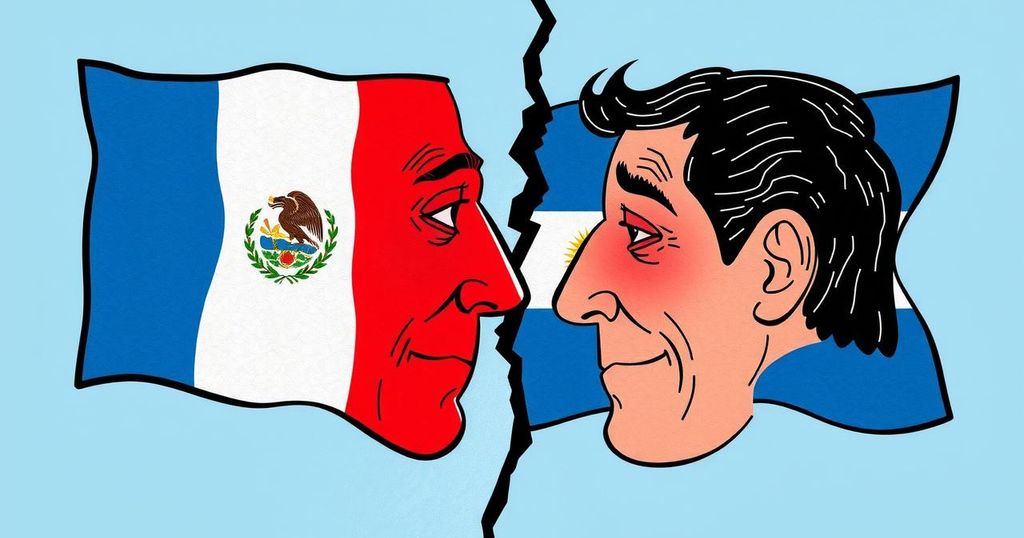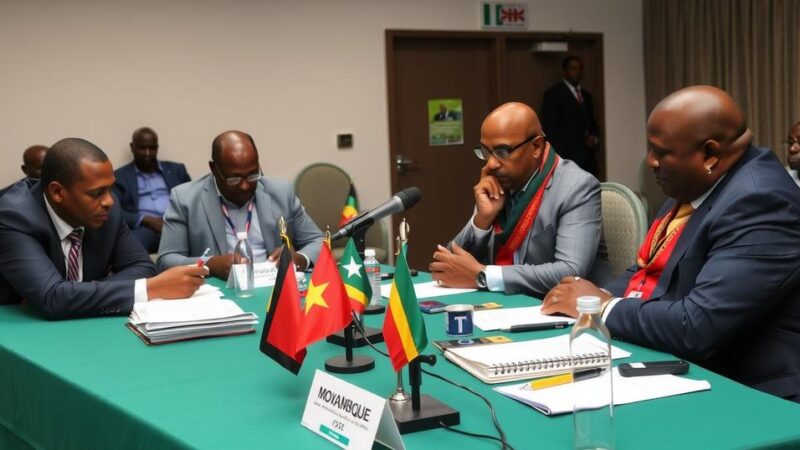The Chilean government protested remarks by Argentine Economy Minister Luis Toto Caputo, who criticized President Gabriel Boric’s leadership and labeled him a “Communist.” This comment has sparked diplomatic tensions between the two nations, which are already experiencing strained relations due to diverging political ideologies and previous contentious statements regarding security issues. Caputo also challenged Kicillof’s bid for Aerolíneas Argentinas under Milei’s privatization efforts, further complicating the economic discussions between the two countries.
The Chilean government, led by President Gabriel Boric Font, has expressed strong discontent following comments made by Argentine Economy Minister Luis Toto Caputo. During a recent radio interview, Caputo labeled President Boric a “Communist” and criticized the political landscape in Chile. He stated, “Today they are practically governed by a Communist who is about to sink them,” suggesting that Chile has ignored vital cultural battles. In response, the Chilean Foreign Ministry lodged a formal protest through diplomatic channels to the Argentine ambassador, Jorge Faurie, highlighting the inappropriateness of Caputo’s remarks.
Caputo’s assertion came amid heightened tensions in bilateral relations since President Javier Milei’s election in Argentina, marked by a prior incident involving comments from Minister of Security Patricia Bullrich concerning alleged terrorist connections between Hezbollah and Chile. Caputo also directed his critique towards Brazilian President Luiz Inácio Lula da Silva, reflecting his broader disdain for leftist governance in Latin America. Moreover, he questioned the motives of Buenos Aires Province Governor Axel Kicillof regarding his bid for Aerolíneas Argentinas, previously managing the economy under former President Cristina Fernández de Kirchner and now perceived as an unsuitable candidate due to past economic failures.
The diplomatic spat underscores the cooling ties between Chile and Argentina following the election of President Milei, a leader known for his criticism of regional leftism. Both nations have experienced tension over divergent economic policies and political philosophies. As economic strife continues to challenge both countries, these allegations may further complicate their relationship in the foreseeable future.
The situation arises against the backdrop of shifting political dynamics in South America, particularly with the changes in leadership in Chile and Argentina. President Gabriel Boric, representing the left, faces criticism from neighboring Argentina, where President Javier Milei has adopted a critical stance against leftist governments in the region. Historically, Chile has made significant strides in poverty reduction, a point accentuated by Argentina’s economic challenges under various previous administrations. The comments made by Caputo reflect a growing trend of political rhetoric that may complicate diplomatic relations between the two nations.
In conclusion, the altercation signifies a critical moment in Chile-Argentina relations, focusing on divergent political ideologies and the implications of economic management under leaders perceived as leftist. The protest lodged by Chile symbolizes a robust rejection of external criticisms, particularly in light of past socio-economic achievements. As both nations navigate their respective political landscapes, maintaining diplomatic dialogue will be pertinent to addressing mutual concerns moving forward.
Original Source: en.mercopress.com







